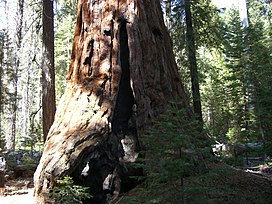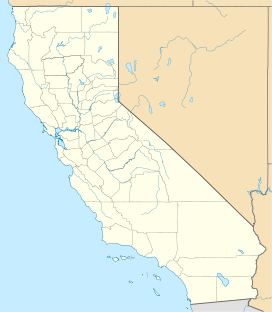| Freeman Creek Grove | |
|---|---|
 The George H. W. Bush Tree | |
| Map | |
| Geography | |
| Location | Tulare County, California, United States |
| Coordinates | 36°08′22″N118°30′33″W / 36.13944°N 118.50917°W |
| Ecology | |
| Dominant tree species | Sequoiadendron giganteum |
Freeman Creek Grove is a grove of giant sequoias located in Giant Sequoia National Monument in the Sierra Nevada in eastern California. The area is a botanical reserve under administration by the Sequoia National Forest, except for one small inholding. The largest unlogged grove outside of a national park, it covers about 1,425 acres (5.77 km2) in the Freeman Creek Watershed, mainly south of Freeman Creek. Freeman Creek itself is a tributary of the Kern River. [1]
